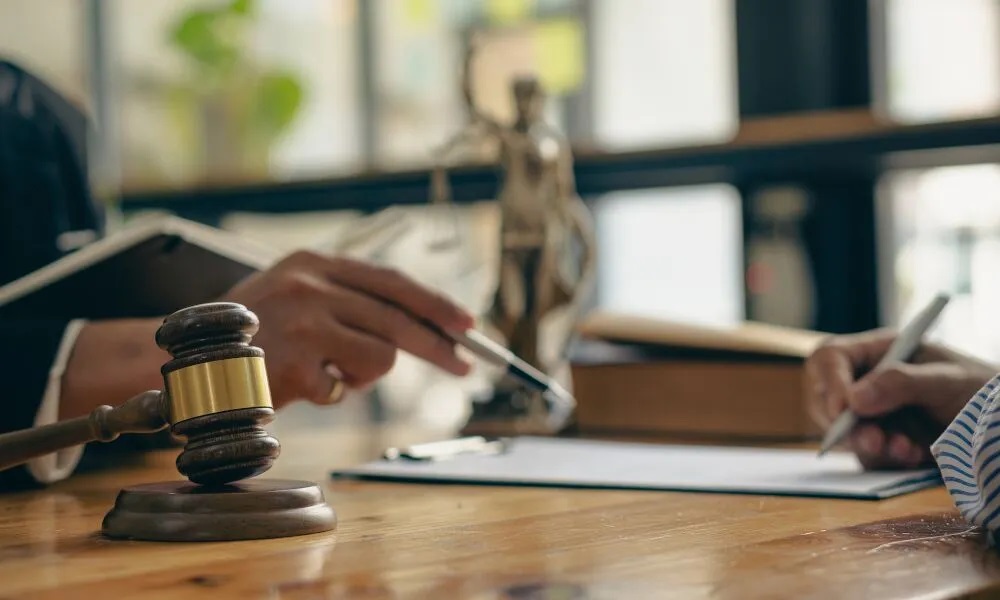Knowing if you have a valid personal injury case after an accident can seem confusing. Whether due to a car crash, fall, or medical errors, accidents can cause injuries through no fault of your own. By carefully examining the circumstances that led to harm, an experienced personal injury lawyer can evaluate whether you may qualify to receive compensation through a civil lawsuit. This guide outlines the key steps to help you determine if you have a valid personal injury claim.
1. Assess the Nature of Your Injury
The first step in determining the validity of your personal injury claim is to assess the nature and extent of your injury. Personal injuries can range from minor to severe, and it’s crucial to understand the impact your injury has had on your personal and professional life. Consider the physical, emotional, and financial consequences of your injury.
Have you experienced significant pain, suffering, or disability as a result of the accident or incident? Has your injury prevented you from working or participating in activities you previously enjoyed? These factors can help you gauge the severity of your injury and determine if it warrants a personal injury claim.
2. Establish Negligence or Wrongdoing
To have a valid personal injury claim, you need to establish that someone else’s negligence or wrongdoing caused your injury. Negligence occurs when someone fails to exercise reasonable care, resulting in harm to another person. For example, in a car accident, if the other driver was texting while driving or ran a red light, they may be considered negligent.
In a slip and fall case, if a property owner failed to address a hazardous condition, they may be deemed negligent. To prove negligence, you need to gather evidence that demonstrates the other party’s breach of duty. This evidence can include accident reports, witness statements, photographs, or medical records that support your claim.
3. Consult with a Personal Injury Lawyer
Consulting with a Louis W. Grande Injury Lawyer is crucial to determine the validity of your claim and understand your legal rights. Personal injury lawyers specialize in assessing the merits of cases and can provide expert guidance based on their knowledge and experience.
Many reputable law firms offer free consultations, allowing you to discuss the details of your case without any financial obligation. During the consultation, the lawyer will evaluate the strength of your claim, consider applicable laws, and offer legal advice on the best course of action. They can explain the legal process, potential challenges, and the likelihood of success in pursuing your claim.
4. Consider Damages and Compensation
When determining the validity of your personal injury claim, consider the damages you have suffered as a result of the injury. Damages can include both economic and non-economic losses. Economic damages refer to actual financial losses, such as medical expenses, rehabilitation costs, lost wages, and property damage.
Non-economic damages encompass intangible losses, such as pain and suffering, emotional distress, loss of enjoyment of life, and loss of consortium. Evaluating the extent of your damages is crucial in assessing the value of your claim. A personal injury lawyer can help you understand the types of damages you may be entitled to and advocate for fair compensation on your behalf.
5. Understand the Legal Process
It’s essential to understand the legal process involved in personal injury claims to make informed decisions about your case. Your personal injury lawyer will guide you through each step of the process, ensuring that you meet all necessary deadlines and requirements.
This process typically involves filing the necessary paperwork, conducting investigations, gathering evidence, negotiating with insurance companies, and, if necessary, proceeding to trial.
Your lawyer will explain the applicable laws, statutes of limitations, and legal strategies that can strengthen your claim. Understanding the legal process will help you navigate through the complexities of your case and increase your chances of a successful outcome.
6. Gather Supporting Evidence
To strengthen your personal injury claim, gather supporting evidence that substantiates your case. This evidence can include accident reports, medical records, photographs, video footage, witness statements, and expert opinions.
Preserving and organizing all relevant evidence is crucial in establishing liability and demonstrating the extent of your damages. Your personal injury lawyer will review the evidence and determine its admissibility in court. They can also help you obtain any additional evidence that may strengthen your claim.
7. Evaluate Settlement Options
In many personal injury cases, parties involved may opt for a settlement rather than going to trial. Before accepting any settlement offers from insurance companies or the opposing party, seek the advice of your personal injury lawyer. They will evaluate the fairness of the settlement and negotiate on your behalf to ensure you receive the compensation you deserve.
Your lawyer will consider the long-term implications of the settlement, including future medical expenses or ongoing treatment. They will assess the potential value of your claim and advise you on the pros and cons of accepting a settlement versus pursuing litigation.
Conclusion
Determining the validity of your personal injury claim requires a thorough assessment of various factors, including the nature of your injury, establishing negligence, consulting with a personal injury lawyer,evaluating damages, understanding the legal process, gathering evidence, and evaluating settlement options.
It’s important to consult with a well- infomed Louis W. Grande Injury Lawyer in Providence, RI who can provide expert guidance tailored to your specific case. By taking the appropriate steps and seeking professional advice, you can protect your rights and pursue fair compensation for your injuries.

